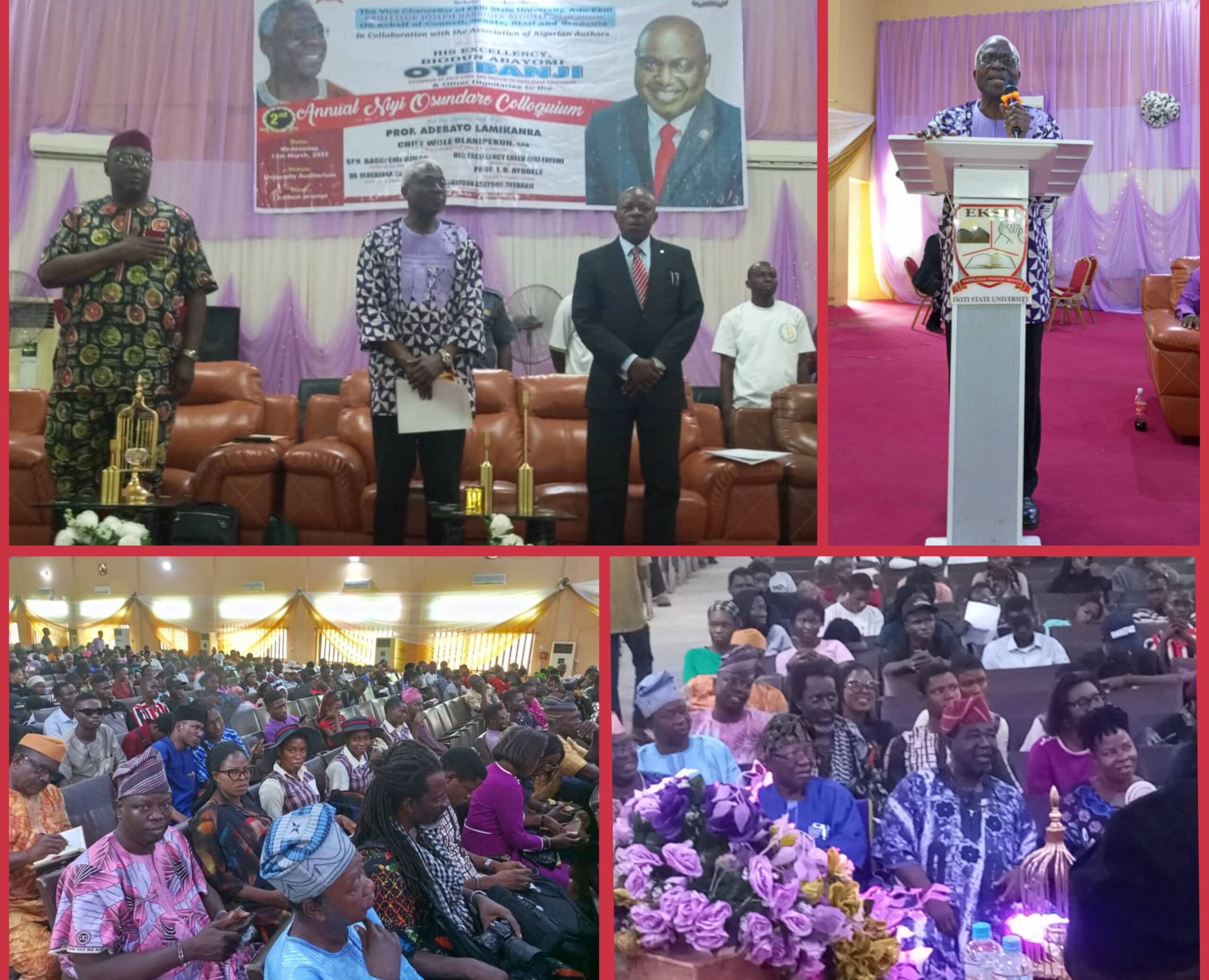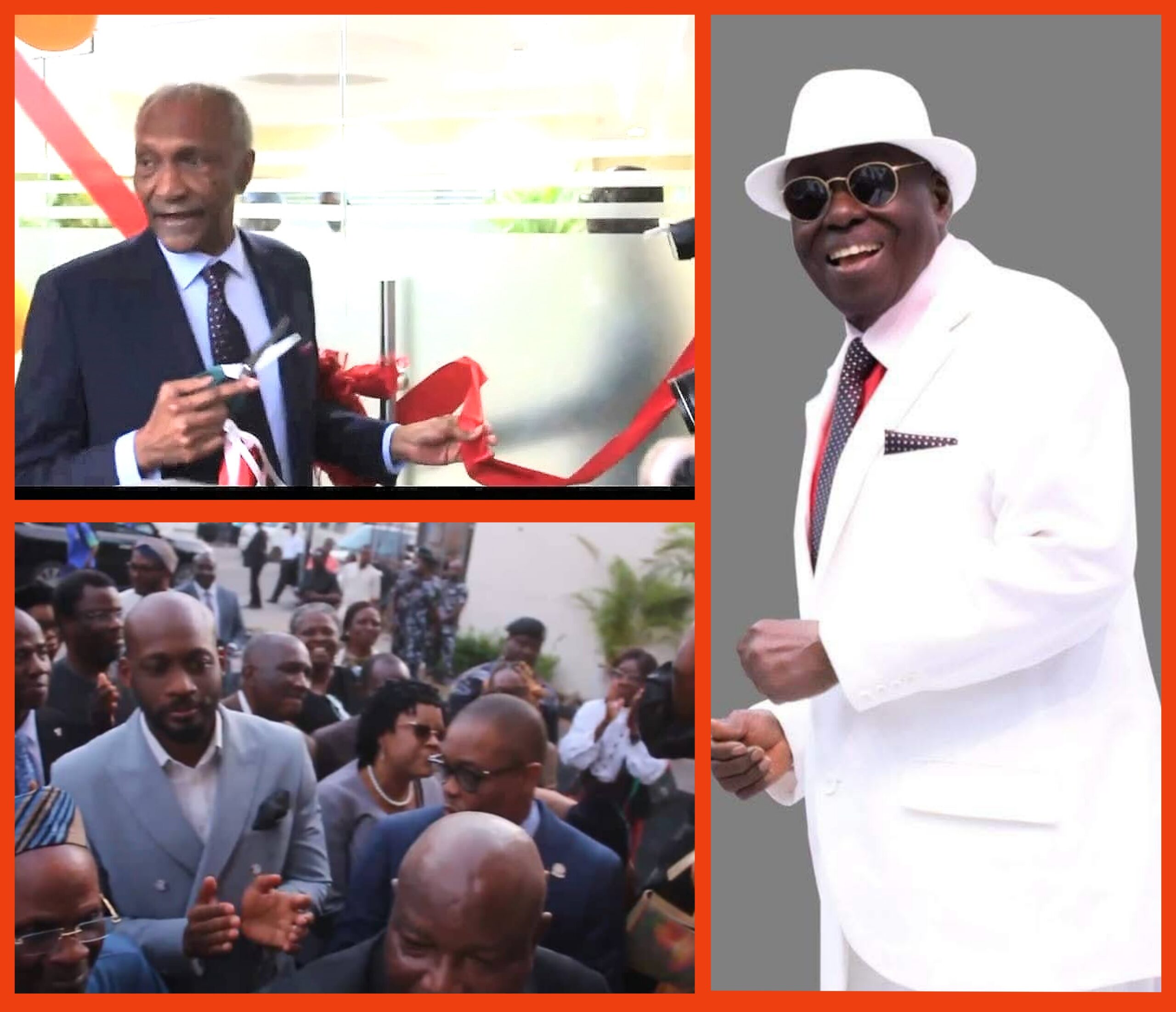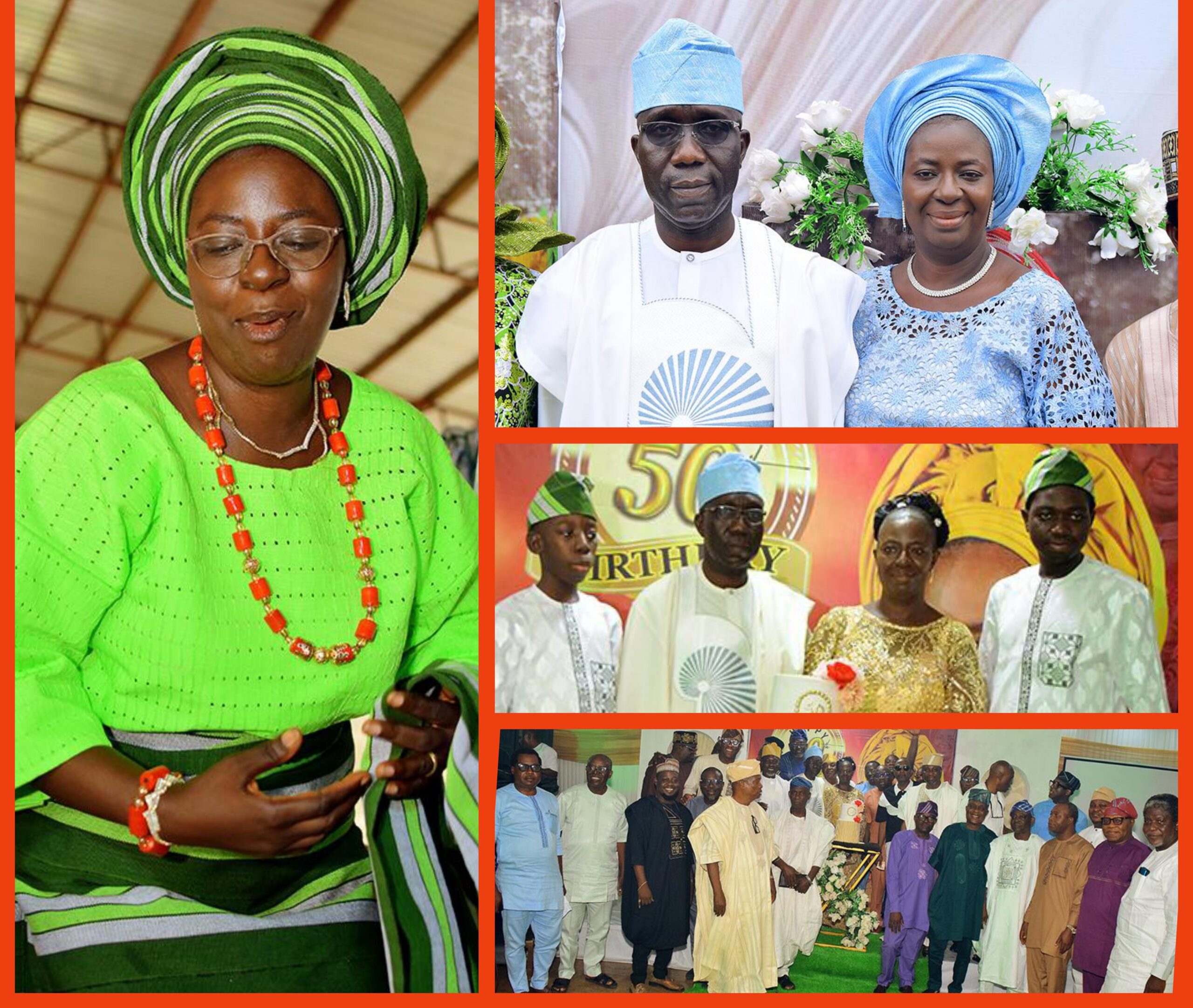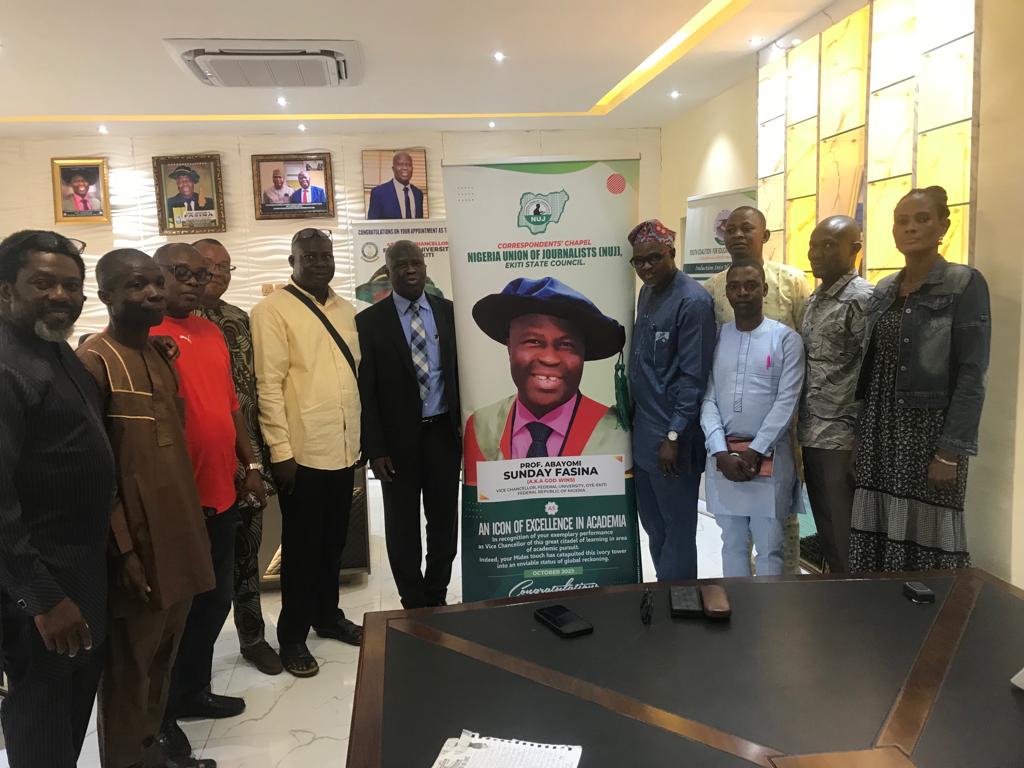
* Ikere: The wellspring of creativity – Babafemi Ojudu
By John Odunayo
The dateline was March 12, 2025 and the occasion was the celebration of the 78th birthday of no other person than the celebrated poet, wordsmith and scholar, Prof. Niyi Osundare.
The event organized by the Association of Nigerian Authors, Ekiti State Chapter in collaboration with Ekiti State University, Ado Ekiti under the aegis of 2nd Annual Niyi Osundare Colloquium featured talks, performance, dance, and readings of the works of the poet’s works.
The yearly Niyi Osundare Colloquium, according to ANA, is a yearly celebration of literature, arts and culture.



Renowned scholar and pharmacist, Prof. Adebayo Lamikanra, was at the occasion where he spoke on the theme, “The role of the writer in a society in need of social reengineering” just as former presidential political adviser celebrated the Ikere Ekiti born Osundare with a piece titled, “Ikere: The Wellspring of Creativity”.
In attendance were Osundare; ANA members across the state, management of EKSU led by the Vice Chancellor, Prof. Babatola Ayodele; students of tertiary institutions in Ekiti State and cultural and drama troupes from the various institution, friends and family members of the celebrated poet.
ANA State Chairman, Dr Daramola, who described Osundare as “Ekiti-born literary colossus and towering public intellectual, said the event was “celebration of the literary accomplishments, contributions and feats of one of the living leading black poet – not just in Africa – but in the world”.



The ANA chairman described Osundare as “Someone who has four doctorates – one earned and three honoris causa, whose literary works have been translated to 13 major foreign languages as at the last count”.
He said that the essence of celebrating Osundare was to “wake up the sleeping giants in us and to inspire us to strive for excellence. It is our great pleasure in the ANA Ekiti to celebrate the Farmer’s Son in his lifetime and not to trumpet some hypocritical eulogies when he is gone”.
The ANA chair said, “Celebrating him (Osundare) in his lifetime is the least we can do to show that
we sincerely appreciate his immense contributions to literary
excellence and activism.



“Let me publicly thank the man who made this event this big. Left
to us in ANA, we would have probably gathered few scholars,
writers and school children, at maybe some obscure location, but
when Senator Ojudu got to know we were planning a colloquium to celebrate Prof Osundare, he swung into action immediately. He started pressing buttons and making connections for us. The very distinguished senator, we’re grateful sir.
“Also, I thank the VC, EKSU, Prof J. B. Ayodele, who without any hesitations agreed that the university should collaborate with us to make this event a colourful and memorable one. Mr Vice-Chancellor, we say, thanks in millions, sir”.
EKSU VC, Prof Ayodele, said, “Prof Niyi Osundare, a world renowned poet, writer, essayist, scholar, and public analyst, deserves to be celebrated. This is in view of the immense contributions of the literary icon to literature, art, literacy, activism and drama.



“His poetry has been greatly influenced by the oral poetry of the rich Yoruba culture which he has mixed with other notable poetic traditions/cultures across the globe.
“The entire Ekiti State University heartily rejoices with the erudite scholar on this recognition,” the VC said.
In his rendition, Ojudu began with rhetorics: “Have you ever wondered about the creative energy that flows from Ikere? What is it about this town that has produced the man we are celebrating today—Prof. Niyi Osundare, a poet of immense talent, whose verses, steeped in the richness of his culture, have mesmerized the world of poetry?”


Ojudu, who praised the shining stars in Ikere Ekiti, added: “The Osundare family itself has given the world three great professors: Niyi, Foluso, and Biodun. Their father, though without a day of formal schooling, bequeathed to them the gift of language and performance, as well as the science of farming. As a performer, he gave his most famous son to literature and performance; as a farmer, he gave two other sons to agriculture. These are the three professors.
“Today, as we celebrate Osundare, we also celebrate Ikere—its past, its present, and its boundless potential. And perhaps, in the not-too-distant future, when the world gathers to bestow its highest literary honor upon him, we will remember that this Nobel-worthy brilliance was not conjured from thin air. It was born from the fertile ground of Ikere—a town that continues to give the world the gift of genius”. (The full speech is at the end the write up)
In his response before he took to the dancing floor with the cultural groups, Osundare appreciated Ojudu for the beautiful piece, saying all Ikere sons and daughters must have the speech.



Osundare, who professed his love for Ikere, Ekiti towns and communities and as well others in Nigeria, said he had always reflected them in his works.
He appreciated ANA in the state and Ekiti State University for the honour done him with the yearly event.
Osundare said, “This is a moment of homecoming for me, I haven’t been to this part of the country since 2019. In 2020, there was COVID, I could not even come to Nigeria. As COVID was receding, a monster called abduction and kidnapping replaced it. It became difficult for me to travel.



“Even when in Nigeria, I was restricted to Ibadan even in Ibadan city, I made sure that at 7 o’clock in the evening, I was already at home because quite a number of my colleagues were being kidnapped. Those of them that survived, the stories they gave us actually made us more frightened”.
Osundare, who said that participating in an event like the honour virtually, facing the screen for hours, could be traumatic, said, “No punishment could have been greater, but this is the kind of hardship our country imposes on us”.
The poet who thanked Senator Ojudu and Ekiti State Government for making his trip to Ekiti State to attend the event a possibility, said, “It was compulsory, but it was very uncomfortable for me too.
“Being surrounded by policemen now in my country so as to avoid the danger and the threat of my being kidnapped in Nigeria 2025, no healthy country allows that kind of thing to happen! I have no freedom of movement and so many millions of us have been deprived of this”.



He recalled his trip from Ibadan to Ekiti State on Monday, saying, “Through the terrible roads, we got here. I was feeling the bumps of the roads thank goodness my old lower back survived it, but I also felt at peace because I didn’t have to look left and right whether gunmen with AK 47 were coming.
“That is how to live in a prison. Our country, Nigeria today is a prison for many of us. I would have said all of us maybe I shouldn’t say all of us, those in position of power are out of it.
“We have to tell ourselves the truth, this is not how to live. It means it is not how to learn. It is not how to teach. I remember the past we had in this country; the 1960s still remain our best years. Now things have got so bad,” Osundare said.
The poet, thanked ANA Ekiti State led by Dr Olugbenga Daramola and Ekiti EKSU management led by the Vice Chancellor, Prof. Babatola Ayodele, for the honour done him, saying, “However, the arrangements here convinced me that our sleep is not death”.

Ikere: The Wellspring of Creativity
By Babafemi Ojudu
Have you ever wondered about the creative energy that flows from Ikere? What is it about this town that has produced the man we are celebrating today—Prof. Niyi Osundare, a poet of immense talent, whose verses, steeped in the richness of his culture, have mesmerized the world of poetry?
Have we ever connected the smooth, soul-stirring melodies of Sade Adu to the towering, seamless grace of Orole Hill? Have we ever paused to ask why this same town gave us Dele Jegede, the visual artist whose brushstrokes have captivated audiences far beyond our shores?
And what about the sheer intellectual force emanating from Ikere? It has produced the highest number of professors in Ekiti—not just in title, but in stature—scholars whose works have left indelible marks on their respective fields.
The Osundare family itself has given the world three great professors: Niyi, Foluso, and Biodun. Their father, though without a day of formal schooling, bequeathed to them the gift of language and performance, as well as the science of farming. As a performer, he gave his most famous son to literature and performance; as a farmer, he gave two other sons to agriculture. These are the three professors.
Do we know that the man of letters who now leads this university (EKSU), Prof. J.B. Ayodele, is also an Ikere man?
Have we reflected on why the late Ogoga of Ikere was the most distinguished patron of that genius of a carver, Olowe of Ise? Many of the breathtaking carvings that now adorn the British Museum were commissioned by the Ogoga who reigned in the early 20th century.
Have we given thought to why Ikere has produced so many Senior Advocates of Nigeria, including three from the illustrious Olanipekun family—wizards of the law, shaping legal discourse in Nigeria? Another Olanipekun, from a different lineage, has also carved his name into legal history, earning the ultimate honor in the legal profession.
Even today, Ikere continues to shine in contemporary creativity. One of the most hilarious, most ingenious, and most successful skit makers of Ekiti origin, Goroso, hails from this town. Apiri music bears the unmistakable touch of Saka, another Ikere native. And let us not forget the late Jab Adu, the talented actor of The Village Headmaster fame, who came from the same Adu family that gave us Sade Adu’s father, Prof. Adu.
Ade Wesco, the juju musician who once dominated Ibadan’s social scene, traces his roots to Ikere. And then there was Mohbad, a rising star whose light was tragically snuffed out before its full brilliance could be seen. The melody of his music, the raw honesty of his lyrics, and the rapture of his art held the nation spellbound for weeks after his passing—and still resonate today.
Beyond the arts, Ikere has made significant contributions to public service. The first Army Chief of Ekiti origin, Major General Olufemi Oluyede, hailed from Ikere. His senior brother, Dr. Wole Oluyede, has gained renown in medical practice in Australia. The current Chairman of the EFCC, the formidable anti-corruption agency, is a son of Ikere—Mr Ola Olukoyede, from the distinguished Ogunkeyede family. The first female Police Commissioner of Ekiti State origin? Also from Ikere.
In the realm of technology, Ikere has been no less remarkable. The late Prof. Longe, reputed to be the first professor of Computer Science in Nigeria, if not Africa, was from this town. When Sade Adu returned to Nigeria for her father’s burial, it was in his home she found hospitality. And then there is Dr Babajide Agboola, a veterinary doctor and son of the famed agronomist Prof. Akinola Agboola, traversing Nigeria’s forests and plains, documenting its flora and fauna.
One could go on and on.
I have thought long and hard about this. Could this creativity and brilliance be attributed to the free spirit of the Ikere persona? The one who farms on Saturday, worships on Sunday, and by Monday takes to the streets in a dance, reveling in the moment, oblivious to the impatient honk of an approaching vehicle? “We both have the right to this road,” he tells the perplexed driver, his revelry unhindered, his joy unshaken. Or could it be linked to iyan ana, the moderately fermented pounded yam, once a delicacy across Ekiti but particularly associated with the Ikere people, giving them the cognomen Ukere Kete oliyan ana?
Or could Ikere’s creative dynamism be traced to its history as a melting pot of cultures? Haven’t you heard of Are-Ikere, Afao-Ikere, Igbemo-Ikere, Agbado-Ikere, Oyo-Ikere? These are people from different parts of Yorubaland, dispersed from their homelands, seeking refuge in Ikere, bringing with them their own traditions, worldviews, and talents. Some came from Benin, carrying the echoes of Edo’s ancient artistry. Even some aborigines of Ado, from the Elesun ruling dynasty, found shelter in Ikere when pursued by the Awamaro warriors who, coming from Benin, subjugated the aborigines, history tells us. They landed in Ikere and took refuge there, bringing with them not just their heritage but their agidi—their stubborn determination.
This confluence of cultures, this cross-pollination of ideas and influences, has infused Ikere with an enduring vibrancy. Like all societies that welcome others, embracing new knowledge and art to enrich and renew themselves, Ikere has flourished—particularly in the realms of scholarship, creativity, and culture.
And it is from this rich soil that the man we honor today emerged. Prof. Niyi Osundare is not merely a poet; he is a vessel of Ikere’s essence, a custodian of its lyrical spirit, and a chronicler of its rhythms. His poetry carries the cadence of the talking drum, the wisdom of the ancient town square, the philosophy and knowledge of the Aladoko and his twin brother Alamudu, and the resilience of a people who have learned to turn adversity into art.
But as we celebrate our past and present achievements, we must also protect our future. I urge all our accomplished brothers and sisters from Ikere—whether in the arts, law, business, or public service—to take up the urgent task of mentoring the younger generation. This town of our pride, known for its brilliance and creativity, must not be overtaken by the rising tide of cyber fraud, the so-called ‘Yahoo’ trade, that is ensnaring our youth. It is our collective responsibility to guide them toward a future rooted in integrity, excellence, and the rich legacy of ingenuity that Ikere has always embodied.
Equally, I call on the elite of Ikere Ekiti to rise above the petty divisions that threaten to stymie the town’s progress. History has shown us that societies that flourish are those that unite behind a common purpose. What unites us—our heritage of scholarship, creativity, resilience, and excellence—is far greater than whatever differences may exist among us. We must resist the temptations of factionalism, jealousy, and discord. A house divided against itself cannot stand, and a town consumed by internal strife cannot achieve its full potential.
Today, as we celebrate Osundare, we also celebrate Ikere—its past, its present, and its boundless potential. And perhaps, in the not-too-distant future, when the world gathers to bestow its highest literary honor upon him, we will remember that this Nobel-worthy brilliance was not conjured from thin air. It was born from the fertile ground of Ikere—a town that continues to give the world the gift of genius.
May we honor that gift by ensuring that unity, vision, and progress define Ikere’s future.
* Being a speech delivered at the 2nd Annual Niyi Osundare Colloquium organized by ANA, Ekiti Chapter in collaboration with EKSU




